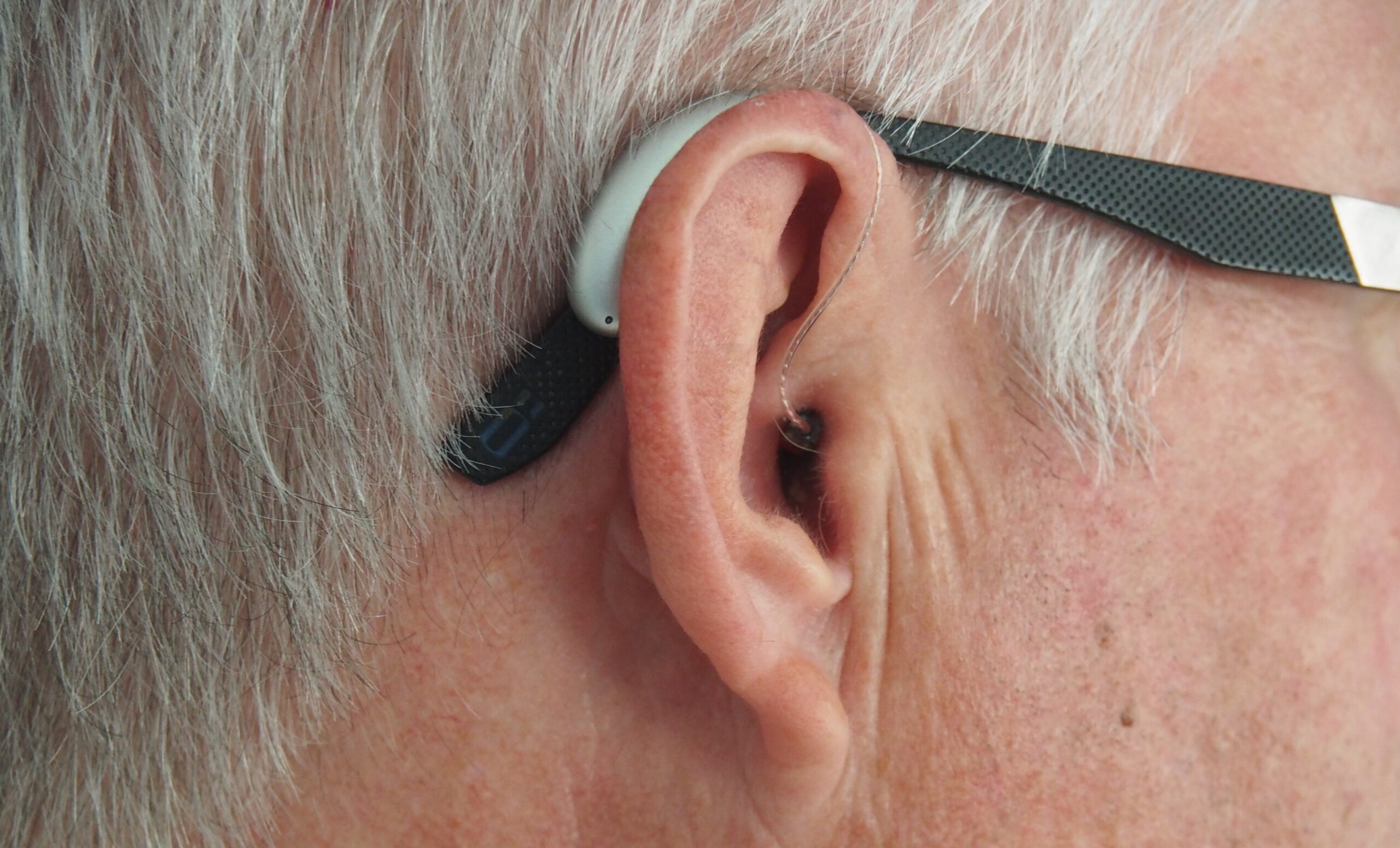Vertigo and hearing loss are closely linked conditions that significantly impact quality of life. Vertigo, characterized by dizziness and balance issues, often originates in the inner ear—the same area responsible for hearing. The inner ear’s dual functionality means that disruptions in one area can frequently affect the other, creating a challenging cycle of symptoms for individuals to manage.
Understanding the connection between these conditions can lead to better management and improved overall well-being. By addressing both the hearing and balance aspects, individuals can work towards regaining control over their daily lives. At New Generation Hearing Centers, our Miami audiologists aim to educate and support individuals dealing with these challenges by providing tailored solutions and expert guidance.
What Is Vertigo?
Vertigo is a sensation of spinning or dizziness that can make even simple tasks feel overwhelming. It often stems from issues within the vestibular system, a part of the inner ear that controls balance. This system works closely with the cochlea, highlighting the intricate connection between hearing and balance. When the vestibular system malfunctions, it can profoundly disrupt daily life, from impairing movement to making simple activities seem daunting.
Common causes of vertigo include:
- Benign Paroxysmal Positional Vertigo (BPPV): Small calcium particles dislodged in the inner ear can trigger episodes of dizziness. This condition is one of the most frequent causes of vertigo and often responds well to physical maneuvers.
- Meniere’s Disease: A disorder characterized by vertigo, tinnitus, and fluctuating hearing loss. It is a chronic condition that requires long-term management.
- Vestibular Neuritis: Inflammation of the vestibular nerve can lead to severe dizziness and balance issues, often resulting from viral infections.
- Labyrinthitis: An inner ear infection affecting balance and hearing, leading to vertigo and auditory symptoms.
How Hearing and Balance Are Connected
The inner ear contains two crucial systems: the cochlea, which handles hearing, and the vestibular system, which manages balance. These two systems work together, sharing the same physical space and often influencing each other. When one system is compromised, the effects can cascade to the other, creating a complex interplay of symptoms that affect hearing and balance.

For example, Meniere’s disease impacts both hearing and balance, often leading to vertigo, tinnitus, and progressive hearing loss. This interconnectedness highlights why hearing loss can exacerbate balance issues. The auditory system is critical in helping individuals orient themselves within their environment. For those with hearing impairment, the absence of auditory cues, such as spatial sound awareness, can make balance problems more pronounced and increase the risk of falls or disorientation.
Recognizing the Signs of Vertigo
It’s important to identify the symptoms of vertigo early to seek appropriate treatment. Common signs include:
- Dizziness or a spinning sensation
- Nausea and vomiting
- Difficulty maintaining balance
- Tinnitus (ringing in the ears)
- Hearing loss or a feeling of fullness in the ears
Managing Vertigo: Treatments and Strategies
The treatment of vertigo depends on its underlying cause. Effective management often includes a combination of medical interventions and lifestyle changes designed to address symptoms and improve quality of life. Understanding the root cause is essential for tailoring the right approach to each individual.
- Vestibular Rehabilitation Therapy (VRT): This physical therapy focuses on retraining the brain to adapt to balance changes, improving stability, and reducing dizziness. Exercises often include head movements, balance tasks, and eye exercises tailored to the patient’s specific needs.
- Medications: Anti-nausea drugs, vestibular suppressants, or steroids may be prescribed to manage symptoms. These medications can provide immediate relief, particularly during acute episodes of vertigo, though they may not address the underlying condition.
- Canalith Repositioning Maneuvers: For BPPV, techniques like the Epley maneuver can help move displaced calcium particles back into place. These quick and non-invasive treatments are highly effective and often provide immediate results.
- Lifestyle Adjustments: Avoiding triggers such as rapid head movements, managing stress, and staying hydrated can alleviate symptoms. Diet modifications, such as reducing salt intake for Meniere’s disease, can also play a critical role in management.
- Hearing Aids with Balance Features: Advanced hearing aids now include features that support balance monitoring, providing dual benefits for individuals with hearing loss and vertigo. These devices enhance auditory input and help users stay oriented in their surroundings, reducing the risk of falls and improving overall confidence.
How Hearing Aids Can Help Manage Vertigo
While hearing aids are primarily designed to improve auditory function, they can be essential in managing vertigo-related issues. By restoring auditory input, hearing aids help individuals regain spatial awareness, reduce feelings of disorientation, and enhance their confidence in navigating daily life. The integration of modern technology has further expanded their utility, making them a vital tool for both hearing and balance health.
Modern devices offer features such as:
- Directional Sound Processing: Enhances focus on specific sounds, aiding in environmental awareness and making it easier to detect auditory cues essential for balance.
- Tinnitus Masking: Reduces the impact of tinnitus, which often accompanies vertigo, providing relief from constant ringing or buzzing sounds.
- Connectivity with Balance Tools: Integration with apps and devices that monitor balance and provide feedback, offering users real-time insights and improved control over their symptoms.
Living with Vertigo and Hearing Loss
Adapting to vertigo and hearing loss requires a holistic approach. Addressing these challenges can lead to a more fulfilling and independent lifestyle.
Here are strategies to enhance daily life:
- Prioritize Communication: Use hearing aids and practice face-to-face communication to stay connected. Clear communication can help reduce misunderstandings and foster stronger relationships.
- Engage in Balance Exercises: Activities like yoga, tai chi, or vestibular-specific exercises can improve balance, strengthen core stability, and reduce vertigo symptoms over time.
- Stay Socially Active: Join support groups or participate in social activities to combat feelings of isolation and loneliness. Sharing experiences with others can be both comforting and inspiring.
- Embrace Technology: Leverage apps and tools designed to assist with balance and hearing challenges. Many apps provide balance training exercises, hydration reminders, or real-time posture and stability feedback.
The Future of Vertigo and Hearing Loss Management
Research continues to uncover new ways to address vertigo and its relationship with hearing loss. As science progresses, the focus on innovative treatments and tools has grown significantly, paving the way for exciting possibilities:
- Gene Therapy: Researchers are exploring potential treatments to repair inner ear damage by regenerating damaged hair cells, which could restore both hearing and balance functions.
- AI-Enhanced Diagnostics: Artificial intelligence is being utilized to detect balance and hearing issues earlier and more precisely. These tools help clinicians personalize treatment plans based on detailed, real-time data.
- Integrated Devices: Advances in technology have led to the development of hearing aids and other wearable devices that enhance auditory input and incorporate balance monitoring and overall health-tracking features, such as fall detection and activity levels.
These innovations aim to improve the quality of life for individuals affected by vertigo and hearing loss. They offer hope for better management, greater independence, and the potential to address these conditions more effectively in the future.
Empowering Your Journey to Better Hearing and Balance
Vertigo and hearing loss are interconnected conditions that require specialized care, empathy, and understanding. These challenges can significantly impact daily life, from communication difficulties to mobility concerns. At New Generation Hearing Centers, we are committed to offering advanced diagnostics, cutting-edge technology, and personalized treatment plans to address these issues holistically.
Our team understands that no two individuals are the same. That’s why we focus on tailored solutions to meet your unique needs, empowering you to regain control and confidence. By addressing both hearing and balance challenges, you can restore a sense of normalcy and significantly improve your quality of life.
Take the first step toward better hearing and balance health today. Contact us to schedule a consultation and discover the solutions that await you.


